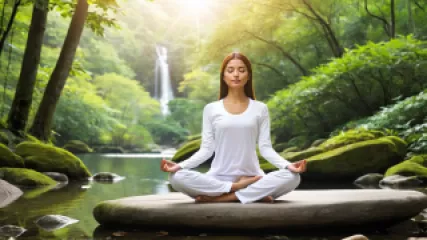The Power of Mindfulness Techniques for Relaxation: A Personal Perspective
As someone who has experienced the transformative power of mindfulness techniques for relaxation, I am compelled to share my personal perspective on the subject. Mindfulness has become a buzzword in recent years, but its true essence goes beyond trendy self-help practices. It is a profound tool that has the potential to bring peace, clarity, and balance to our busy lives.
The Journey to Mindfulness
My journey with mindfulness began several years ago when I found myself overwhelmed by the demands of work, relationships, and personal expectations. I was constantly on edge, feeling like I was running on a never-ending treadmill. It was during this time that I stumbled upon an article about mindfulness meditation coaching and decided to give it a try.
With the guidance of a mindfulness coach, I learned to cultivate a new way of being present in each moment. The practice of mindfulness taught me to observe my thoughts and emotions without judgment, allowing me to develop a deeper understanding of myself and the world around me.
Over time, I noticed significant changes in my overall well-being. I became more aware of the present moment, appreciating the simple joys of life that had previously gone unnoticed. My stress levels decreased, and I felt a greater sense of calm and resilience in the face of challenges.
The Power of Mindfulness Techniques
Mindfulness techniques provide us with a set of tools to navigate the complexities of our modern lives. They enable us to cultivate a heightened awareness of our thoughts, emotions, and physical sensations. By practicing mindfulness, we can learn to respond to situations rather than react impulsively, fostering a more compassionate and thoughtful approach to life.
One powerful technique that has greatly impacted my journey is mindful breathing. Taking a few moments each day to focus on my breath allows me to anchor myself in the present moment. It serves as a reminder to slow down, let go of unnecessary worries, and simply be.
Another technique that has been invaluable to me is body scan meditation. This practice involves systematically scanning the body from head to toe, bringing attention to each area and noticing any sensations or areas of tension. This technique not only promotes relaxation but also helps cultivate a deeper connection with the physical body.
The Benefits of Mindfulness
The benefits of mindfulness extend far beyond relaxation. Research has shown that regular mindfulness practice can have a positive impact on various aspects of our lives, including:
- Mental Well-being: Mindfulness has been found to reduce symptoms of anxiety, depression, and stress. It can improve overall mental well-being and promote a more positive outlook on life.
- Emotional Regulation: By developing an awareness of our emotions, mindfulness allows us to respond to them in a more measured and compassionate way. It helps us navigate difficult emotions and build resilience.
- Improved Focus and Concentration: Regular mindfulness practice has been shown to enhance cognitive function, including attention span, memory, and problem-solving skills.
- Enhanced Relationships: Mindfulness fosters better communication and empathy, leading to healthier and more fulfilling relationships.
- Physical Health: Mindfulness has been linked to improved sleep quality, reduced blood pressure, and enhanced immune system function.
Cultivating Mindfulness in Daily Life
While mindfulness techniques are often associated with formal meditation practices, it is important to remember that mindfulness can be integrated into all aspects of our daily lives. Here are some simple ways to bring mindfulness into your day:
- Mindful Eating: Pay attention to the flavors, textures, and smells of your food. Chew slowly and savor each bite.
- Mindful Walking: Take a stroll in nature and notice the sensations in your body with each step. Observe the sights, sounds, and smells around you.
- Mindful Listening: When engaged in conversation, give your full attention to the person speaking. Listen without judgment and be fully present.
- Mindful Pause: Throughout the day, take short breaks to check in with yourself. Close your eyes, take a few deep breaths, and observe how you are feeling.
The Call to Mindfulness
In a world that often feels chaotic and demanding, cultivating mindfulness is an act of self-care and resilience. It is an invitation to slow down, reconnect with ourselves, and find solace in the present moment.
If you have been contemplating exploring mindfulness, I encourage you to take that first step. Seek out mindfulness coaching services or mindfulness meditation coaching to guide you on your journey. Remember, mindfulness is a practice that requires patience and consistency, but its rewards are immeasurable.
Image Source: Business vector created by freepik - www.freepik.com






